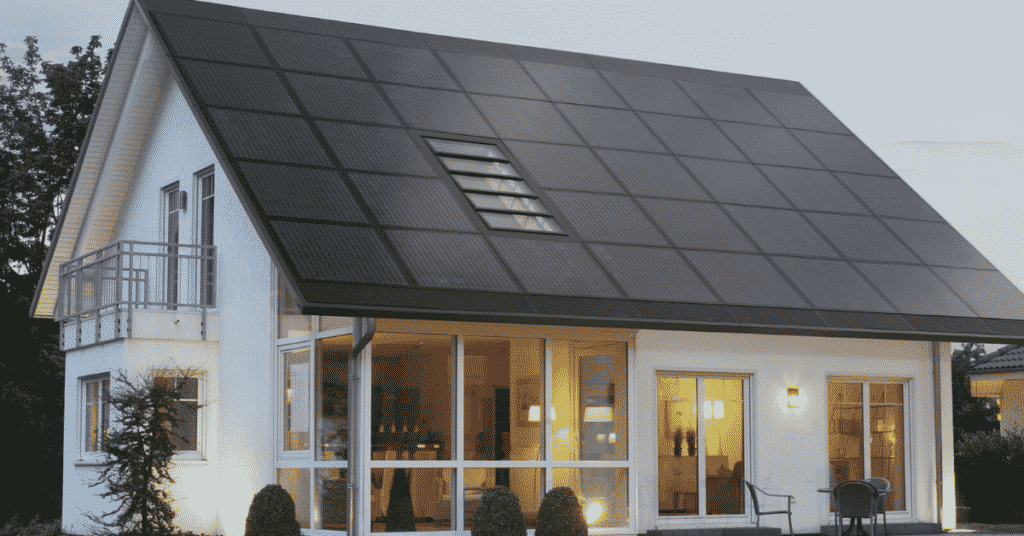The solar panel market is growing as more and more homeowners and businesses adapt to the idea of green energy, but can solar panels reduce climate change?
The short answer is yes. Repeated studies have shown that making the switch to solar energy can reduce your carbon footprint by up to 80%. The statistics show that more solar energy hits the Earth in two hours than humans can use in an entire year!
We will be looking at climate change, solar power, and what solar panels can do for the environment.
What Is Climate Change?
National Geographic defines climate change as:
“A long-term shift in global or regional climate patterns. Often climate change refers specifically to the rise in global temperatures from the mid-20th century to present.“
(National Geographic, Resource library, https://www.nationalgeographic.org/encyclopedia/climate-change/)
Climate change could refer to a specific part of the world, or planet Earth as a whole. Climate change is often accompanied by unexpected weather, which can be damaging to people’s lifestyles, food, and homes.
This process has been taking place for a good few years now, and is a contributing factor in spells of devastating weather. Scientists have warned for years that the world is heating up, and is causing hot dry areas. This is likely a contributing factor in the 2020 Australian bushfires, which razed over 15.6 million acres of land.
The fact that climate change is a slow process does not mean that we have ages to wait. The time to act is now.
Many popular figures have spoken out on climate change, and what methods we can use to slow the process down. One of these methods is solar power.
What Is Solar Power?
There are a number of ways that we can utilise renewable energies, such as wind, hydro, and also solar.
Put simply, solar power is the energy released from the sun that can be harnessed and used by humans.
The way we do this is with solar panels. This renewable source of energy is captured from the sun’s ray by silicone crystals, turning the daylight into an electrical current. Electricity created by solar panel can then be transferred into a grid, and used to power homes and businesses.

Solar photovoltaic (PV) panels are comprised of loads of cells, each containing the materials needed to covert daylight into electricity. Despite the common misconception, solar panels do not need direct sunlight to function. While direct sunlight is helpful, solar PV panels can convert most daylight into electricity – so they work even if it’s cloudy.
The cells are then grouped into ‘modules’, which are then put together to create a PV array. These make up the panels. Solar PV panels are commonly installed on the roof – as this is usually where you get the most undisturbed daylight – but they can also be found on the ground, or in tiles.
What Can Solar Power Do For The Environment?
Solar power has the opportunity to be an enormous benefit to the planet. By installing solar panels on your property, you not only save money on energy bills, you will also be helping the world to a bright, clean future.
As mentioned earlier, many popular figures have spoken out against the growth in climate change, and have urged people to make the switch to solar. Most notably, Sir David Attenborough, the famous naturist and broadcaster, spoke about what humans can do with solar energy:
“If we only take 1/5000th part of the energy that the sun sprays on the earth every day… 1/5000th part would provide all the energy requirements of humanity…”
– Sir David Attenborough
Solar panels create ‘green energy‘. This is energy that comes from natural sources, and are renewable. Comparatively, they are much cheaper than most fossil fuels. Solar energy is the most abundant energy source the earth has, and each solar panel does its bit to harness the power.
Why Switch To Solar Panels?
Regardless of all the environmental benefits of solar panels, why should you adapt and install this energy source in your home?
Well, for one, it can help you to save money on your energy bills. Using solar panels reduces your dependency on the Grid, and you could find yourself spending a lot less money each year! Those without solar batteries will still be reliant on the grid during the night, when there is no daylight, but those with solar batteries can find themselves benefited the most.

Another great thing about solar panels is that they require little maintenance. They have a long lifespan, and rarely need to be replaced. More common electricity and heating sources often require a fair bit of maintenance or replacement to remain fully functional – not solar panels!
Introduced in 2019, a new Grid trade tariff is open to UK homeowners with solar panels. This tariff allows you to sell back your unused energy. Research shows that an average home with solar PV panels uses just 27% of the energy they produce.
So… Can Solar Panels Reduce Climate Change?
Again, the answer is yes. Solar panels can reduce climate change.
Making the change over to solar energy reduces the need for burning fossil fuels. The burning of these fossil fuels is one of the largest contributing factors to climate change. Solar power, on the other hand, is a completely green source of energy, and is completely renewable (as it comes from the sun).
There are many benefits of solar panels, not just for the environment, but also for your lifestyle. They are a worthwhile investment for anybody that is looking to do their part to help the planet, and to decrease their reliance on the national grid, lowering their electricity and energy costs.
The above video says that the potential energy available from the sun is massive, and by harnessing just a fraction of it can power the whole world in just a few hours.
Do your bit to help the world. Go green. Go solar.
